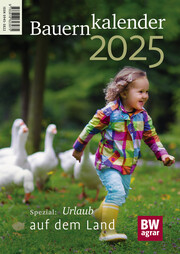Irrigation water quality and soil amendments in Egypt
Effect of Irrigation Water salinity and organic Soil Amendments on Physical and Chemical Properties of Egyptian Soils
Erschienen am
10.05.2012
Bibliographische Informationen
ISBN/EAN: 9783848483082
Sprache: Englisch
Seiten: 204 S.
Format (H/B/T): 1.3 x 22 x 15 cm
Auflage: 1. Auflage 2012
Einband: kartoniertes Buch
Beschreibung
The application of soil amendments and salinity in the irrigation water increased the NPK availability in different soils. The saline irrigation water upto 6000 ppm decreased the fresh and dry weights of alfalfa and sorghum plants. The efficiency of soil amendments on reducing salinity hazard on the fresh and dry weights of alfalfa and sorghum plants could be arranged as follows:(1) sulphur < town refuse < sewage sludge for calcareous soil.(2) Town refuse < sewage sludge < sulphur for alluvial soil, and (3) sewage sludge < town refuse < sulphur for sandy soil. The elemental sulphur was the best soil amendments for increasing NPK and Na content and total uptake of alfalfa and sorghum plants cultivated in calcareous soil. While, the town refuse and sewage sludge were the best for alluvial and sandy soils.The application of soil amendments significantly decreased the soil bulk density and the modulus of rupture in each of surface and subsurface soils, while, salinity of irrigation water upto 6000 ppm, increased them. Soil hydraulic conductivity of surface and subsurface soils significantly increased, under application of soil amendments with Nile water.
Autorenportrait
Dr Ahmed Ibrahim Mohamed Ahmed has obtained his Ph.D degree in soil and water quality in 2006. Since then he has worked in different international and local projects in the field of water quality, composting, magnetized water and recycling of agricultural wastes. He is the author of several articles published in different international journals.
Weitere Artikel des Autors "Ibrahim, Ahmed"
Lieferbar innerhalb 1 - 2 Wochen

Lieferbar innerhalb 1 - 2 Wochen

Weitere Artikel aus der Kategorie "Biologie/Landwirtschaft, Gartenbau, Forstwirtschaft, Fischerei, Ernährung"
Noch nicht lieferbar

Lieferbar innerhalb 24 Stunden

Nicht lieferbar

Lieferbar innerhalb 1 - 2 Wochen










